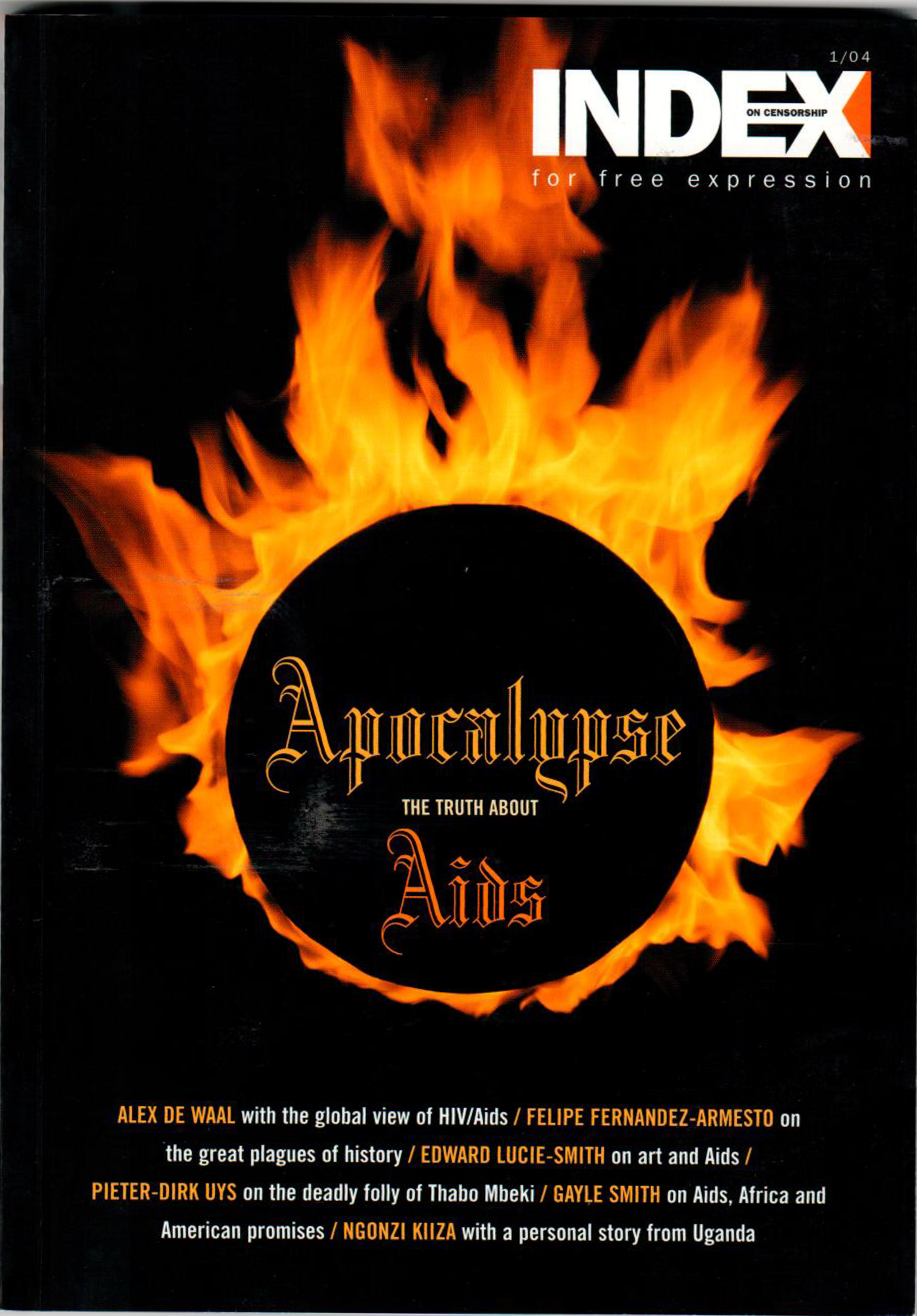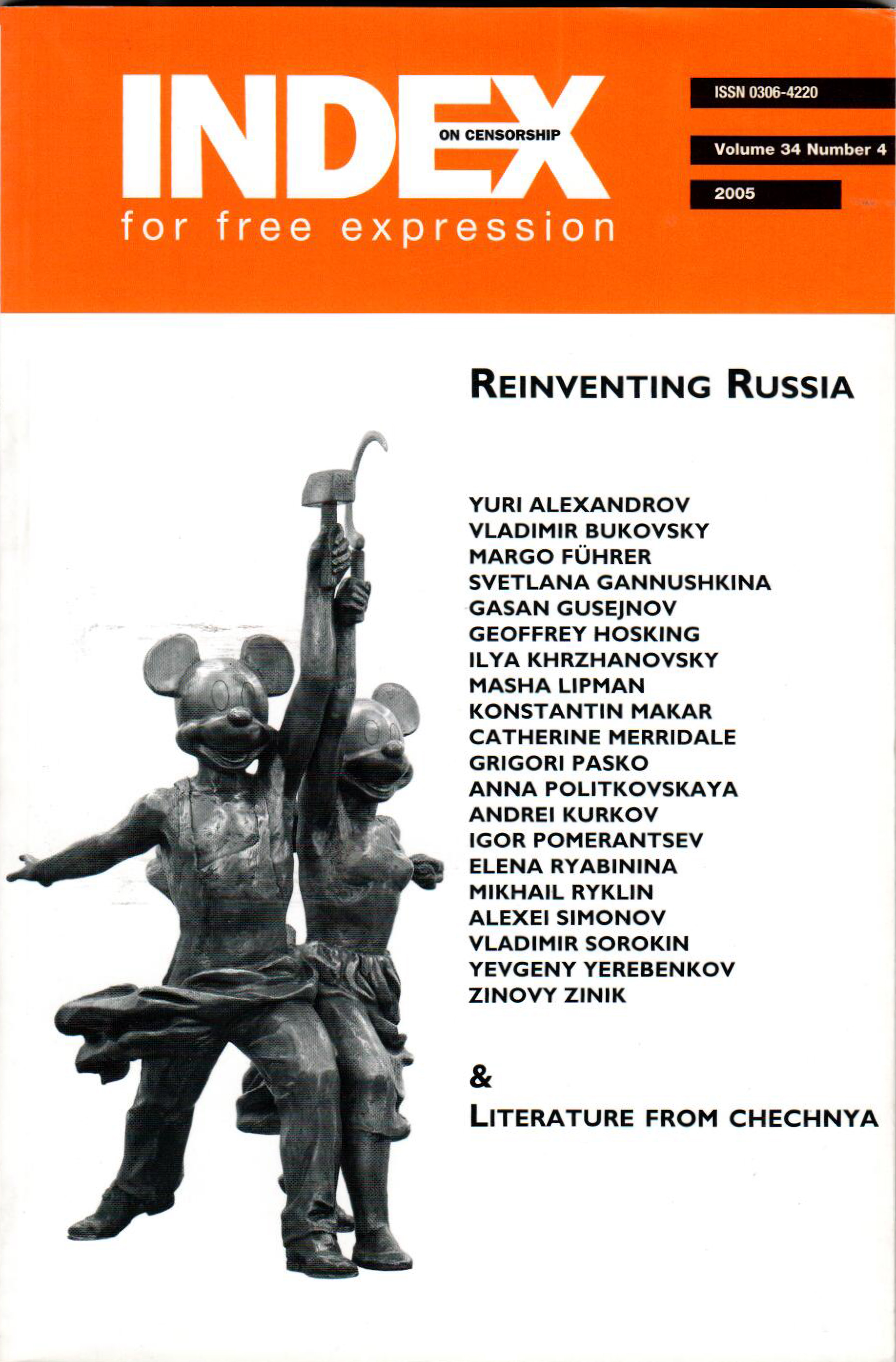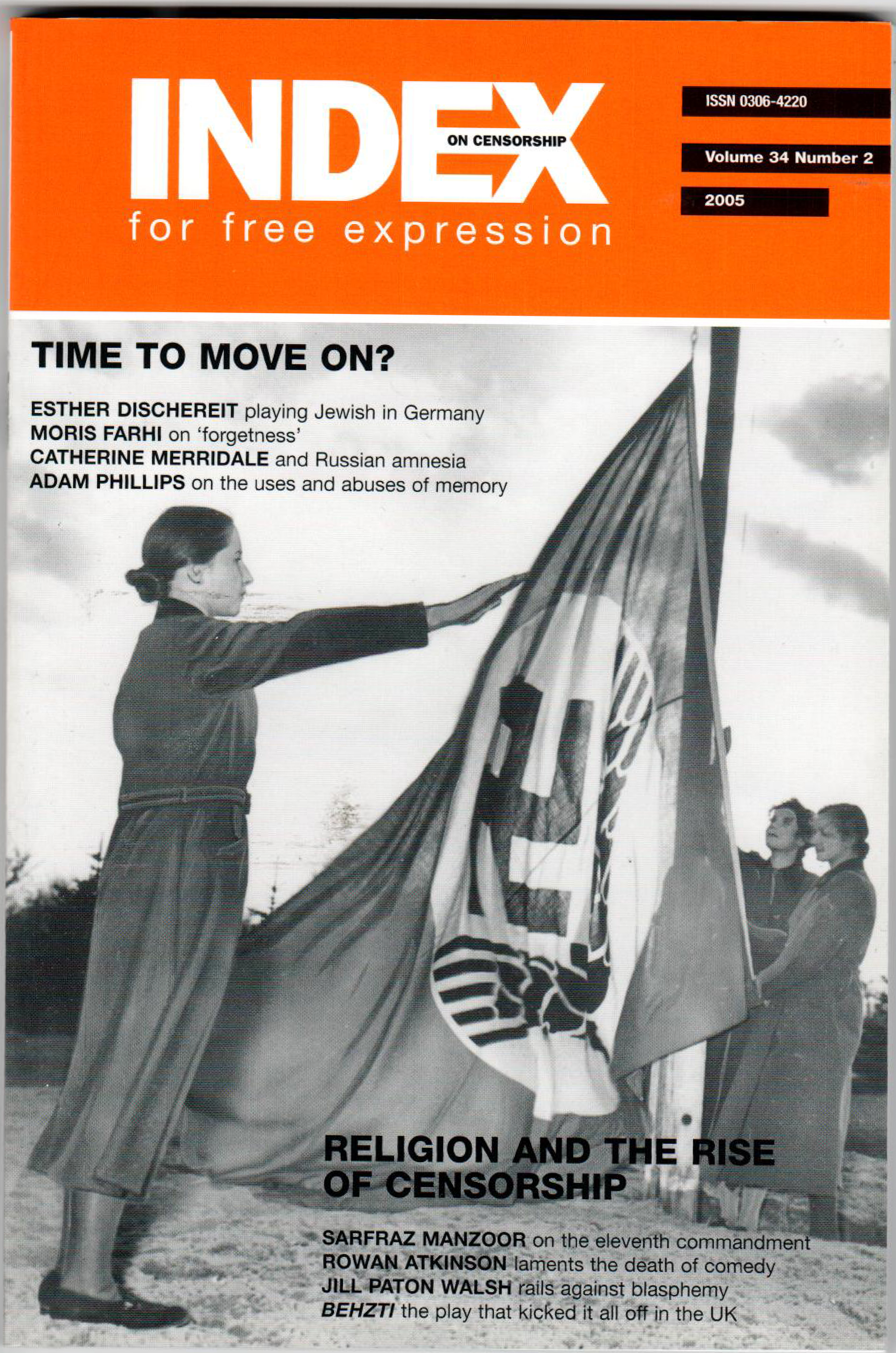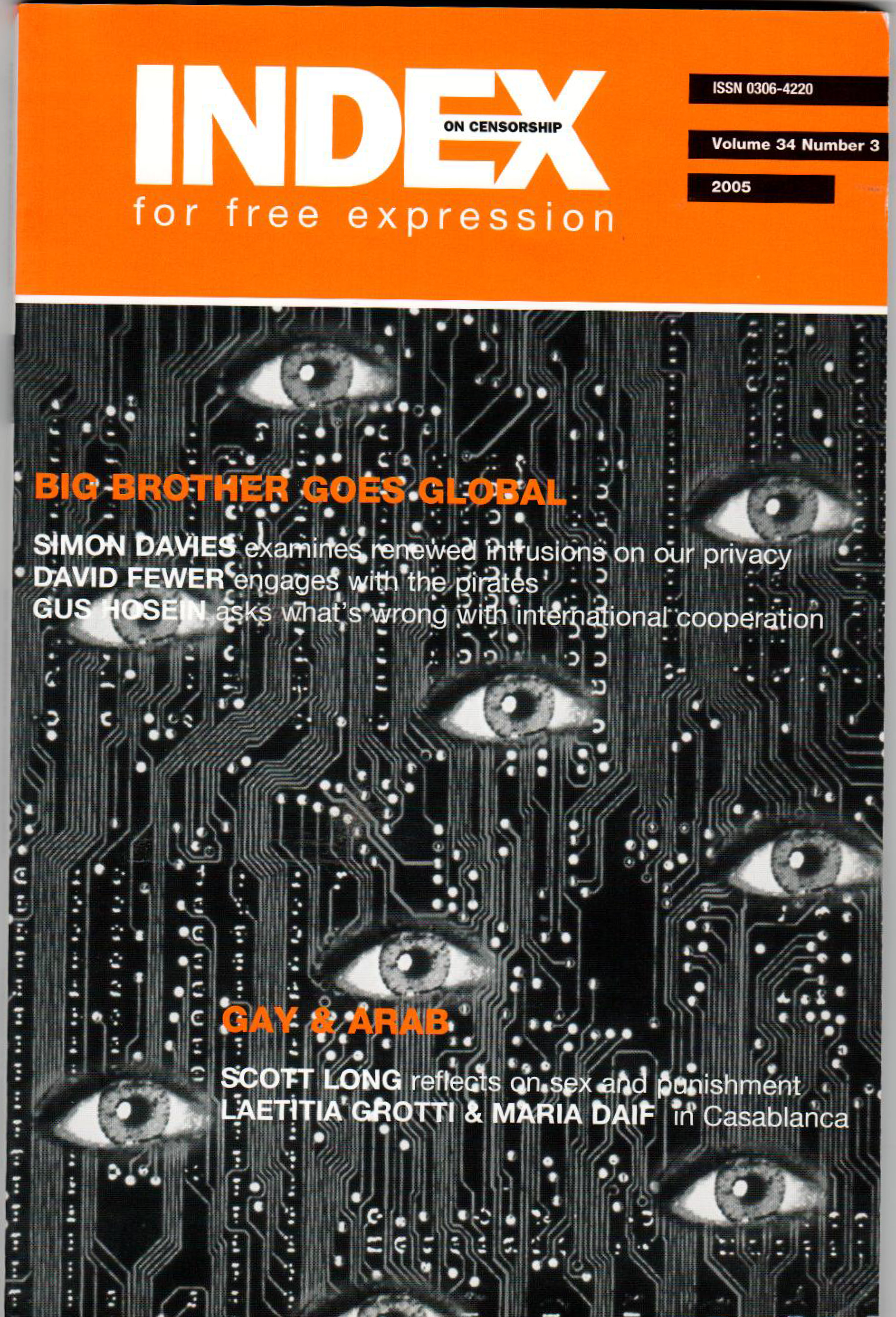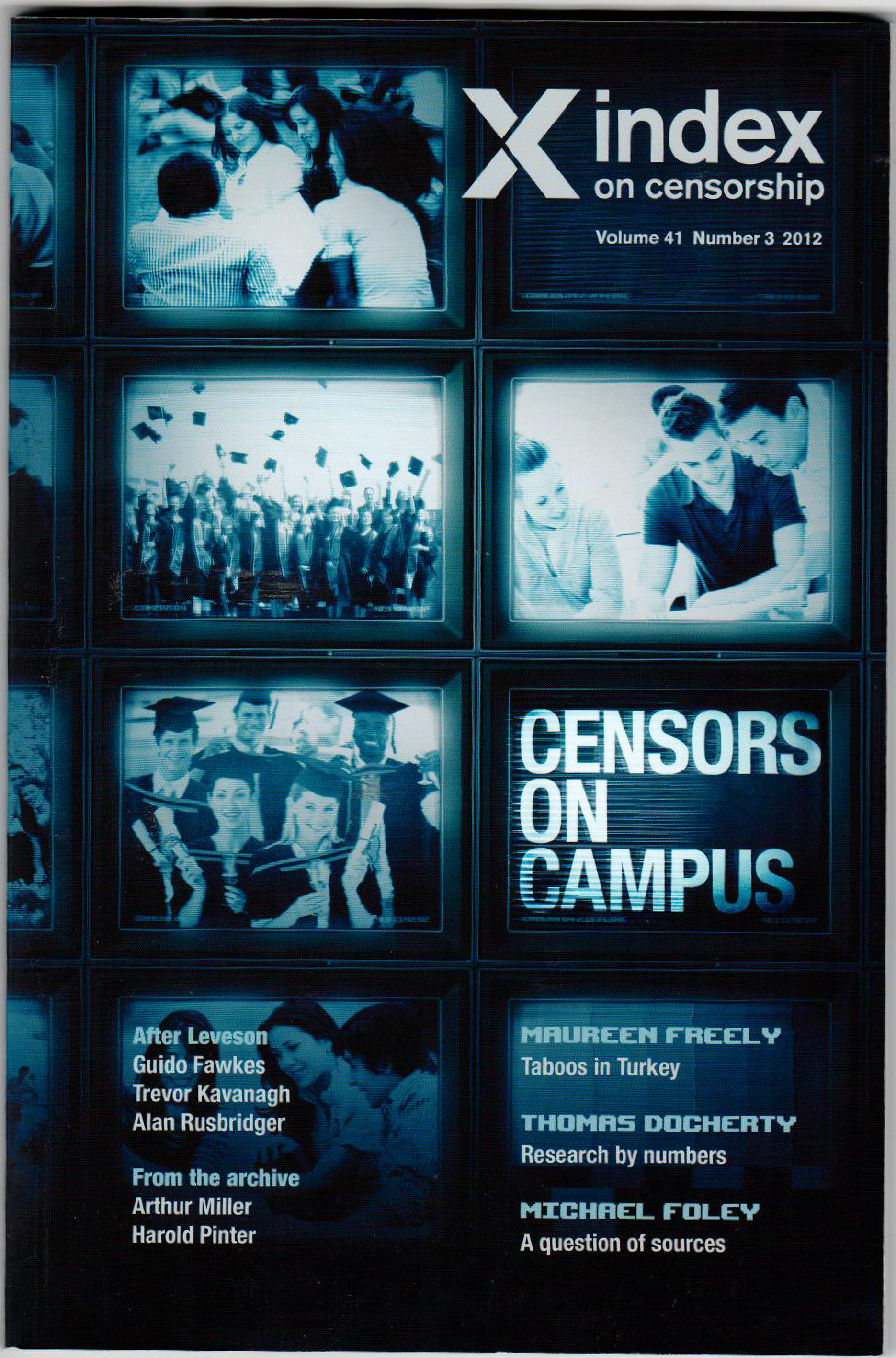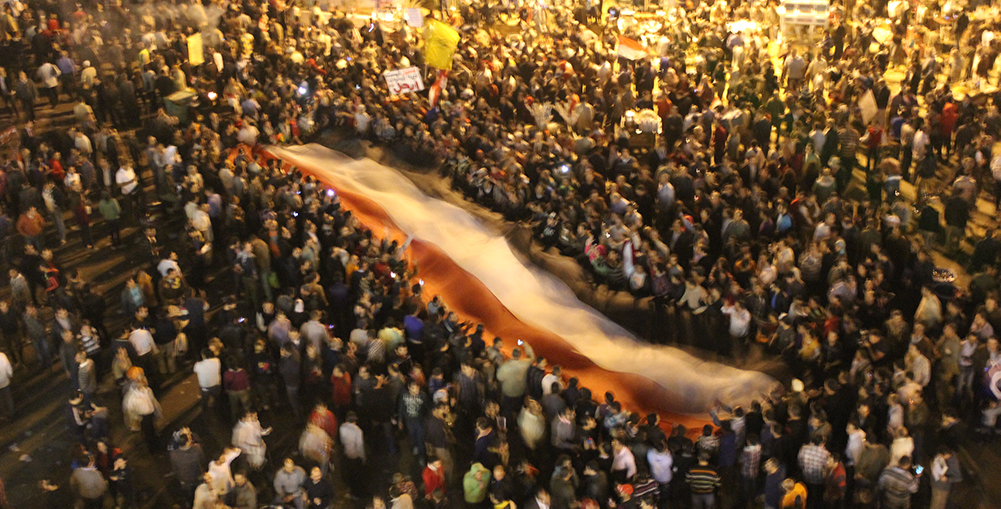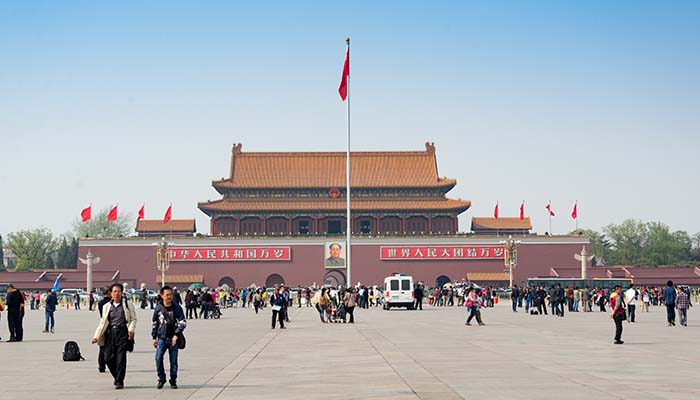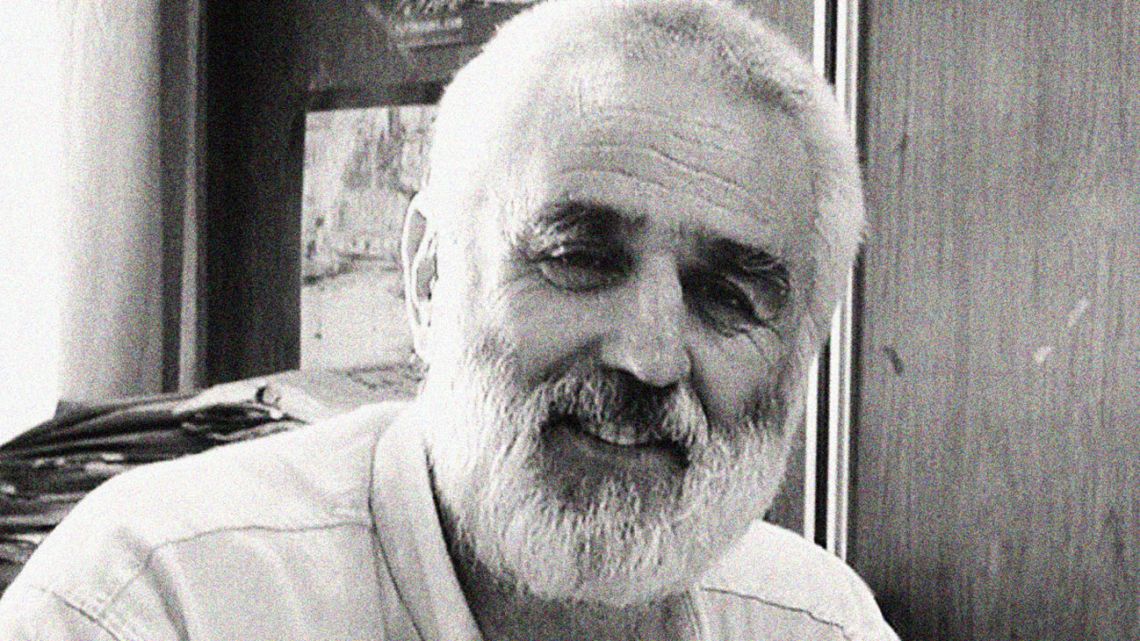
Andrew Graham-Yooll served as editor for the Index on Censorship magazine from 1989-1993. He was then, and remained until his death in 2019, committed to free expression and the free press around the world. In honour of his memory, Index is featuring some of the highlights of his writing for the magazine about his home country Argentina. The pieces featured cover a broad range of topics and events primarily related Argentinian art and journalism, and showcase Graham-Yooll’s fierce integrity and characteristic humor.
June 1973, vol. 2 issue: 2
“Censorship in Argentina is not a sin of the State, but a sickness of society”. Thus closes Andrew Graham-Yooll’s scathing indictment of censorship and self-censorship in the Argentinian press, in an environment where press controls are loosely organised but vicious.Graham-Yooll describes the routine torture and corruption in the criminal-justice system that the Argentinian press seems uninterested in, and expresses his opinion that, however damaging state censorship is, it is the fear and self-censorship it engenders in the press that is truly destorying Argentina’s soul.
The Argentinian press under Peron
March 1975, vol. 4 issue: 1
Andrew Graham-Yooll reflects on the record he kept of all the obstacles to press freedom and independence in Argentina during the early 1970s. He outlines, in broad strokes, the conflict between right- and left-wing branches of Peronism, and what the escalating conflict between the two–and the right wing’s eventual victory–meant for the operation of the Argentinian press. The press had faced restrictions and instability under Alejandro Augustin Lanusse and Hector Jose Campora that exploded into violence and direct government interference with print, radio, and television media under Raul Alberto Lastiri, Juan Peron himself, and his widow, Isabel Martinez de Peron.
March 1979, vol. 8 issue: 2
Graham-Yooll takes a look into the fate of the nine workers at El Independiente, a left-of-center, nationalist local paper in the poor Argentinian province of La Rioja that “established itself on the wrong side of every provincial administration”. After Juan Peron was restored to power in 1973, the paper faced increasing harassment and frequent suspensions, until by 1976, El Independiente was permanently and forcibly closed, with seven of the nine workers arrested under dubious charges, some of their families in exile or tortured, and the remaining two workers missing. The Argentinian Newspaper Publishers’ Association demanded their release, but at the time of the article’s writing they were all still imprisoned.
January 1995, vol. 7 issue: 2
This article is not an obituary, but it deals with the death of a gay Argentianian novelist, Manuel Puig. Puig died of AIDS in Mexico, a fact that Graham-Yooll was surprised to see mentioned in coverage of the artist and his work. Argentina’s social climate tolerates homosexuality to a degree, Graham-Yooll says, but only unobstrusive or plausibly deniable homosexuality. The brutal targeted repression under the military junta of “putos, guerrilleros, y faloperos” (queers, guerillas and drug addicts) is still in living memory for many gay Argentinians, and though the coverage of Puig could be a positive sign, discussion of homosexuality and gay rights was still not part of mainstream news coverage or culture in Argentina at the time of the article’s writing.
April 2004, vol. 33 issue: 2
In 2003, shortly before the article was written, Argentina’s Supreme Court struck down a law passed some twenty years earlier under the junta, which had made it illegal to provide broadcasting licences to community radio. The nominal grounds for that practice had been that it was easier to prevent the infiltration by the regime’s ideological enemies of commercial radio. However, before the law was struck down, its true raison d’etre had become the preservation of cronyism and political nepotism. Graham-Yooll uses the Supreme Court’s ruling as a chance to take stock of Argentina’s broadcasting landscape, with particular focus on the florshing of extra-legal, shoestring FM radio stations.
The Pain and the Memory: The Legacy of Nunca Mas
February 2005, vol. 34 issue: 1
In 1984, Argentina’s National Commission on the Disappearance of Person released a report, Nunca Mas (Never Again), on the human rights abuses under the National Reorganisation Process between 1976 and 1983 that devastated many in the country. In this piece, written in 2012 Graham-Yooll discusses the abuses of the military and the many ways Argentina has attempted to grapple with the report, from the junta trials to a more recent photo exhibition of the atrocities. He shares a few of his own experiences from that time and describes how both dictatorship and report live on in Argentinian memory.
May 2005, vol. 34 issue: 2
In 2004, right after the Argentinian branch of the Catholic Church received praise for opening up politically, Leon Ferrari opened up an exhibition in Buenos Aires reviewing the collusion between the church and some of Latin America’s worst regimes over the centuries. Graham-Yooll describes some of the most important exhibit pieces and the extreme backlash the exhibit received from the church and laymenry–sometimes simultaneously, as in the entertaining story of a Christian vandal whose destruction of a piece was turned into an exhibit piece itself.
Cumbia Villera: the Sound of the Slums
August 2005, vol. 34 issue: 3
A new genre of music is becoming popular in Latin America: the “politically incorrect” cumbia villera, a high-energy, hard-hitting new street music with a Carribbean beat. The lyrics to these songs, according to Graham-Yooll, are “vile and often violent”: they are filled with misogynistic abuse, incitement to prison breaks and riots, and enthusiastic encouragement of alcohol and hard drug use. For this reason, the Argentinain government at the time of the article was considering censoring cumbia villera, but in what Graham-Yooll asserts is a reflection of Argentina’s growing class divide, the music is gaining a mass following in the slums that seems unstoppable.
September 2012, vol. 41 issue: 3
Nearly 40 years after the dirty war, Graham-Yooll examines two new books whose dialogue he believes represent hope that the record of atrocities committed by the junta can be known and Argentina can thus “come to terms” with its past. The first book, Final Disposal, is a set of nine interviews journalist Ceferino Reato conducted with members of the erstwhile regime in prison, in which those members display, according to Graham-Yooll, both generosity with information and a cold and brutal view of their own crimes. The second book, From Guilt to Forgiveness, is a personal account written by Norma Morandini, a former journalist and politician, about her personal journey from denial of what happened under the regime to a reckoning.
September 2015, vol. 44 issue: 3
After Argentina emerged from under the rule of the military junta in 1983, press freedom improved considerably. Now, journalists are not murdered by the regime, but silenced through systemic harassment and the entangled web of cronyism. Graham-Yooll explains how the leader of Argentina at the time of the article, Cristina Fernández de Kirchner, has developed a distinct and effect new “means of controlling the message”: not reactive censorship, but preemptive control of content through control of the ownership and cash flows of the media.
The post Andrew Graham-Yooll on Argentina appeared first on Index on Censorship.




